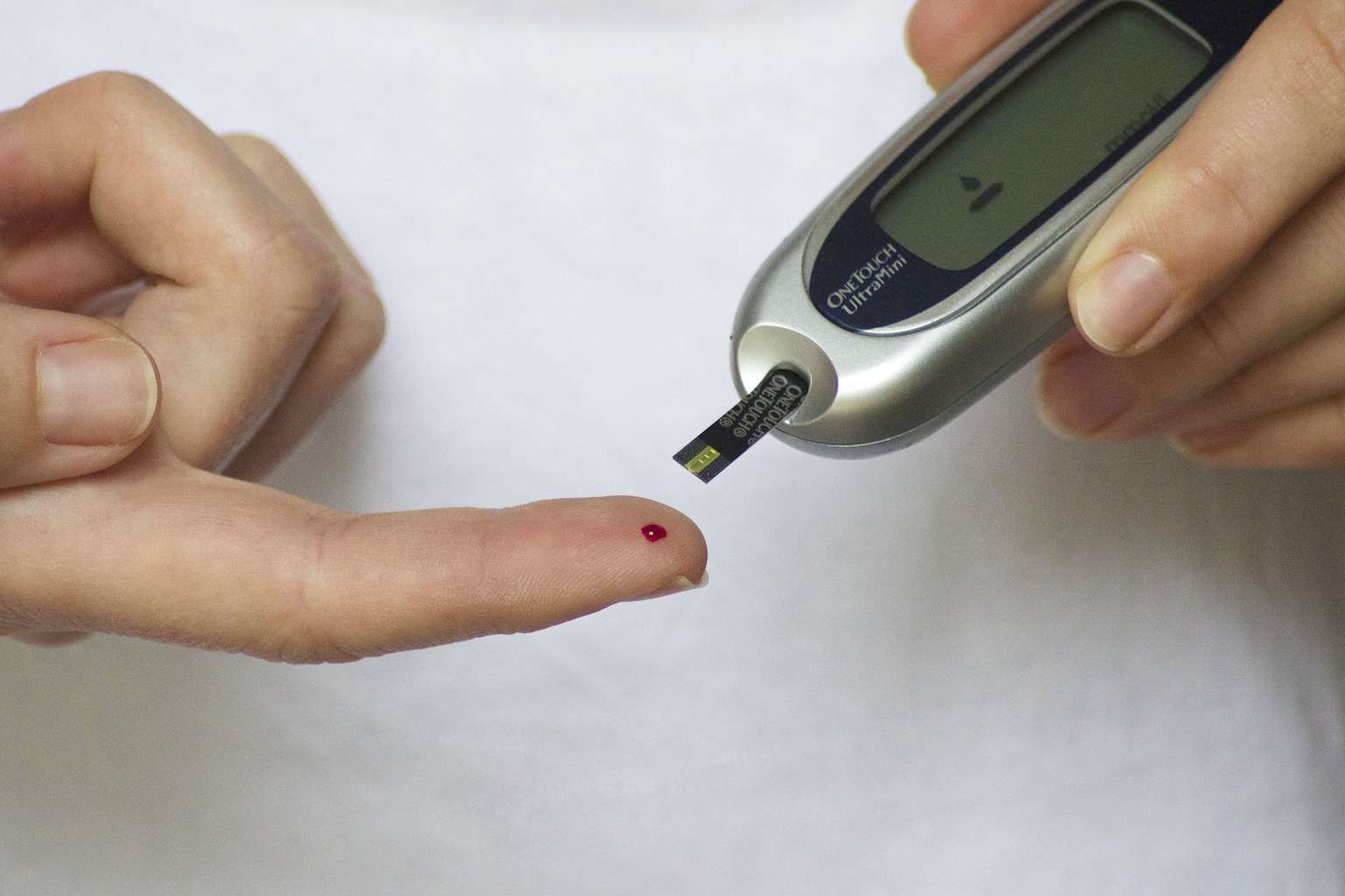- PhentermineLearn more about phentermine and how to get the most from your weight loss journey.
- ResourcesAdditional information and tools to help you make the most of your effort.
- AlternativesLearn more about the most popular weight loss medications and science-backed supplements
Losing Weight with Phentermine While Struggling with Diabetes – Is It Possible?
Published on December 9, 2024

Chances are, you know about Phentermine and its incredible ability to melt away those pesky pounds. If you’ve stumbled upon this, you’re likely curious about the mechanics of Phentermine and thinking about having a word with your doctor.
But if you are reading this article, there are also good chances that you are struggling with either type 1 or type 2 diabetes. So perhaps you are wondering whether or not you are able to use Phentermine along with your diabetes treatment to achieve a healthy weight loss.
Well, you are in luck. And that is because today we decided to tackle that very same question – Are people with diabetes able to use Phentermine safely? Are there any potential side-effects that any Phentermine user should expect? Find out the answers to these questions and more in the following article!
Diabetes – Know the basics
Said simply – Diabetes is a medical condition that characterizes itself with elevated blood sugar levels. In a healthy individual, his/her pancreas produces enough of the hormone which is known as insulin. Insulin is responsible for proper use and store of the sugar and the fat from the food that you eat. Diabetes occurs when little or no insulin is being produced, or the body is not capable, for some reason, to respond to the insulin being produced, which results in elevated blood sugar levels (1).
There are two types of diabetes – type 1 and type 2 diabetes. Type 1 diabetes develops as a result of the body is incapable of producing enough insulin. These patients are obligated to take insulin on a daily level if they want to stay alive. Type 2 diabetes causes the body to become unable to respond properly to the insulin that it is being produced. This is the most common type of diabetes, affecting more than 30.3 million individuals around the globe (2). Type 2 diabetes has been linked to obesity, high cholesterol levels, high blood pressure, a family history of diabetes, as the most common risk factors for this disease.
Common symptoms of diabetes include frequent urination, frequent feelings of thirst, frequent feelings of hunger, blurry vision, fatigue, weight loss with type 1, tingling pain in the hands and feet with type 2, etc (3). If left untreated, common complications include kidney damage, nerve damage, cardiovascular disease, and even Alzheimer’s disease among many others.
Why is losing weight important while struggling with diabetes?
In most cases, when diagnosed in its early stages, diabetes is not that hard to be controlled. Treatment for both type 1 and type 2 diabetes includes insulin therapy and serious lifestyle changes, especially in the case of diabetes type 2.
Losing weight is recommended to all diabetes patients, especially for those whose obesity and overweight problems have led to the development of diabetes in the first place. A healthy diet, with many fresh fruits and vegetables, fiber, proteins, and healthy fats is recommended as the biggest healthy weight loss method. Regular exercise, many water, good sleep are also recommended having an important role in the weight loss process.
But why is it so important to lose weight while struggling with diabetes? Losing the extra body weight can help patients with type 2 diabetes control their diabetes symptoms better, and even put the disease in remission. This will improve their lives overall and their general health as well.
As for patients who have been diagnosed with type 1 diabetes, although it is impossible to reverse the symptoms, the weight loss will once again help you improve your overall health. Not only will you be able to control your diabetes symptoms better, but you will also be able to prevent any worsening of the symptoms as well, by losing that extra body weight, following the rest lifestyle changes, and taking your therapy regularly. So altogether, weight loss is a goal that every person with diabetes should tend to achieve.
What do you may need to know about Phentermine?
Phentermine, also known and sold under many brand names, is a prescription weight loss drug. Phentermine is prescribed only to individuals struggling with obesity or overweight whose BMI (Body Mass Index) is 30 or higher (4). The FDA has approved the use of Phentermine in the United States. It was back in 1959 when Phentermine first hit the market and replaced the so-called Rainbow pills which were used to achieve weight loss until then. Right now, Phentermine is one of the most popular weight loss drugs in the United States.
The way that Phentermine acts are by stimulating the parts in your brain which are responsible for controlling your appetite and energy levels. By taking Phentermine, you will experience reduced appetite and an energy boost on a daily level. Phentermine is meant to be taken only along with a healthy diet and regular workout plan.
So remember, do not get your hopes up if you do not play your part as well and that is good dieting and many quality exercise! Phentermine is prescribed for a short period of time only, as its treatment only lasts 12 weeks.
The potential side-effects of Phentermine
Before starting your weight loss treatment with Phentermine, you have to be aware of the potential side-effects. The list of most common side-effects includes insomnia, low libido, tremors, mood disorders, dizziness, digestive problems, etc. The biggest side-effect that you should fear is an addiction (5).
Unfortunately, many cases where Phentermine has been used end up with addiction. But that is not because there is something wrong with Phentermine. Yes, Phentermine does have an addictive nature, but it only shows when you are misusing it or abusing it. And withdrawal symptoms are what will follow after addiction takes place and you discontinue your use of Phentermine.
Each Phentermine prescription comes with instructions that are meant to be followed. Its prescribed dosage is meant to be respected. Any increase or decrease in the dosage without your doctor’s consent leads you closer to the risk of addiction.
How is Phentermine used?
Phentermine comes in two forms – an immediate-release form and an extended-release form. Your doctor will recommend the best form for you. You can either take Phentermine as a pill, or you can crush the pill into a powder, which you can add to your food and drinks. We recommend taking Phentermine in its sole form as a pill and drinking it with many fresh water. And if you do choose a pill, please do not chew, crush the pill inside your mouth.
Again, your doctor is the only one who can determine and variate your dosage. Otherwise, you should not interfere with it on your own.
Achieve weight loss with Phentermine and control your diabetes
So as we mentioned earlier, diabetes is meant to be controlled, if you want to continue living, that is. And you can put your diabetes under control through some lifestyle changes for sure, especially when it comes to diabetes type 2 as you have learned until now.
Back in the article, we mentioned Phentermine being meant to be used only in a combination of a healthy, balanced diet, calorie restriction, and regular workouts. And so is diabetes! So you can see how these two falls in the same equation.
In order for you to control your diabetes, you are supposed to lose weight, and the most efficient way to lose weight is to combine Phentermine, a balanced diet, and many exercising in the same equation. Of course, your doctor is the only one that is able to make this decision for you. He/she will look at your medical condition, take a note on your current BMI and decide whether or not you are a good candidate for Phentermine. And as soon as your doctor gives the okay, you are ready to proceed and get the most out of your experience with Phentermine (6).
And there is actual scientific proof showing that once combined, Phentermine and lifestyle changes, are capable of achieving efficient weight loss and better control of the blood sugar levels for diabetic patients.
A study was published in 2014, comparing the effects of Phentermine+Topiramate ER along with lifestyle changes for weight loss with the placebo effects. The study showed that patients who were taking Phentermine+Topiramate ER, while introducing other lifestyle changes, have experienced a greater weight loss effect and an improvement in their blood sugar levels as compared with the placebo group (7).
Another study found that the use of Phentermine+Topiramate ER in addition to lifestyle changes has effectively reduced the changes of prediabetic obese/overweight patients to develop diabetes type 2 (8).
To answer your question – yes, Phentermine is safe to be used by people with diabetes struggling with diabetes type 1 and type 2. That is, as long as your doctor gives full consent and gives you a valid prescription for Phentermine. And when he/she does, please remember that you are only meant to follow the instructions given by your doctor. The dosage is to be respected at all times, and any change in symptoms should be reported to your doctor, whether it is for good or bad.
Precautions that people with diabetes using Phentermine should keep in mind
Please keep in mind that just because you are using Phentermine and introducing the lifestyle changes in your life, that does not mean that you are meant to stop using your insulin pills or injections. Not unless your doctor says otherwise. Your blood sugar levels are to be measured on a daily basis, as instructed by your doctor.
If you measured your blood sugar levels before each meal, you are supposed to continue doing so, unless your doctor says otherwise. Please report any strange ups and downs in your blood sugar levels to your doctor right away, including any of the possible side-effects of Phentermine that you might experience.
Conclusion
Phentermine is great for anyone who is looking for a healthy, proven weight loss method, as long as their doctor is ready to write them a valid prescription for Phentermine. So why exclude people with diabetes, diagnosed with either type 1 or type 2 diabetes from this experience?
Weight loss is an important component of diabetes treatment and so, why not use Phentermine to achieve it. Phentermine already requires a healthy diet and regular exercise, which are two of the required lifestyle changes as a part of your diabetes treatment. So you can see how to accompany one another.
We advise you to consider taking Phentermine on your journey to losing weight with diabetes and consulting your doctor about it. But as long as your doctor says okay, there is no room for hesitation, trust us and enjoy your experience with Phentermine!
References
(1) https://www.medicalnewstoday.com/articles/323627.php
(2) https://www.cdc.gov/diabetes/pdfs/data/statistics/national-diabetes-statistics-report.pdf
(3) https://www.webmd.com/diabetes/diabetes-warning-signs#1
(4) https://www.ncbi.nlm.nih.gov/pmc/articles/PMC2687747/
(5) https://www.ncbi.nlm.nih.gov/pubmed/23678625
(6) https://www.phentermine.com/blog/phentermine-diabetes/


